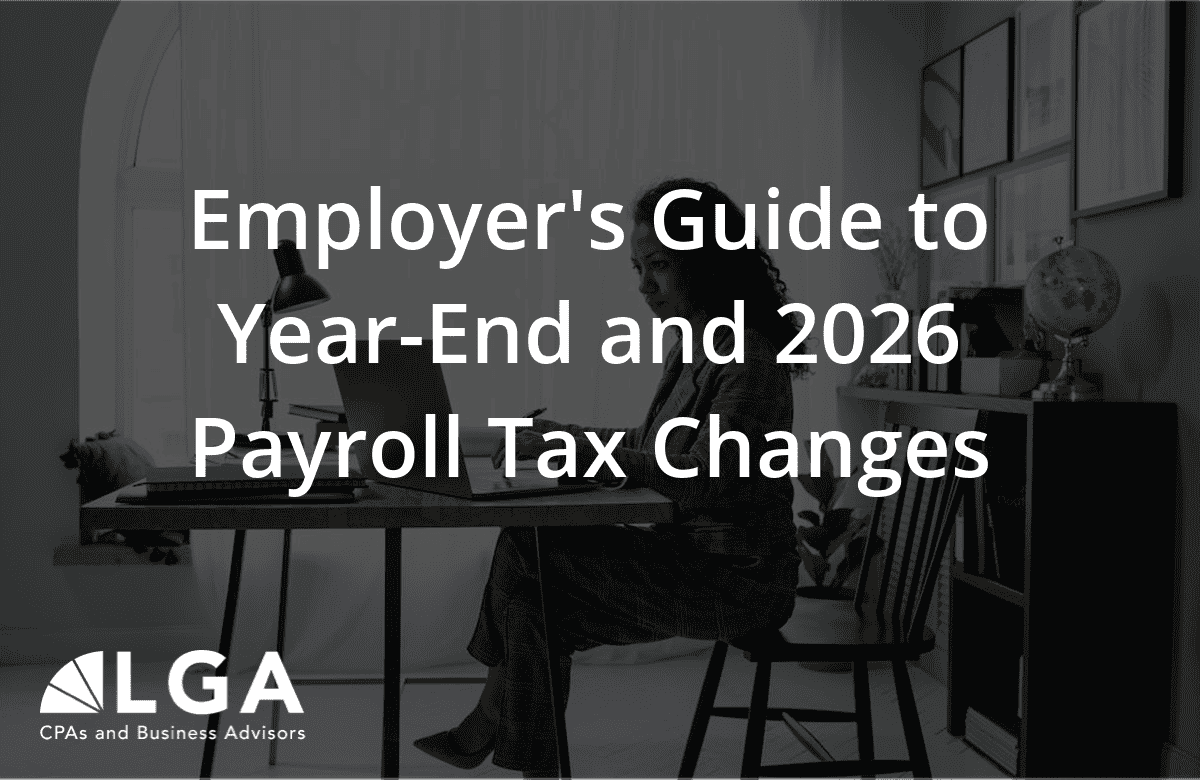
There should be nothing spontaneous about selling your business. Ideally, business exit planning takes place over three to five years because creating the kind of transition you envision for your business takes great forethought and strategy. Planning what you will do with the profits must start early, too. Decisions about donating, gifting, or reinvesting that money should be made long before the sale is finalized.
As business owners move through the process of preparing to sell, two overarching questions come up around wealth transfers. First, how will I get as much money as I can from this sale? Second, how am I going to distribute the proceeds in a manner that serves my priorities while minimizing taxation?
Preserving Wealth During the Sale
Many business owners approach a sale with the singular goal of finding a buyer who’s willing to pay their asking price and get out quickly. Some of those sellers are ultimately satisfied with the transition, but many others have regrets. They might be unhappy with what the new owner does with the business they built, especially if they still own company stock and have a financial interest in its continued success. Or they might realize they left money on the table by being hasty and accepting the first offer when they could have gotten 10 percent more from the right buyer.
How a business is packaged and sold to investors largely determines the quality of the deal a business owner is able to get. Taking the time to ensure that the business is running efficiently, that you understand its true value, and that everything’s transparent for investors are important for ensuring sellers are able to get top dollar and hopefully avoid last-minute offer reductions from unhappy buyers. Working with your business advisors to put together the right deal might take longer but net you a much higher price than you’d get from accepting a first offer.
Options for Transferring Wealth From a Sale
Ideally, business owners would get together with their estate planning advisors and tax advisors as soon as they decide to sell. Even if you don’t know exactly how much money you’ll be walking away with, you can explore various wealth transfer strategies’ legal and financial implications. These are complicated and highly personal decisions with huge tax consequences, including capital gains taxes, gift taxes, and estate taxes.
Reinvestment. Rolling profits into a new business or other investments is one potential strategy that comes with both risk and reward. Investing those profits could grow your wealth, so you have even more money to transfer down the line. That might mean working with investment advisors to expand your stock portfolio, investing in real estate, or even starting another business. For owners in certain circumstances, there may even be tax advantages to rolling the profits from a business sale into a new investment. As one example, business sellers who reinvest their proceeds in an Opportunity Zone—economically distressed communities—before the end of 2026 may be able to defer recognizing capital gain taxes on the initial sale. A like-kind exchange, or 1031 exchange, could also be used to defer capital gains from selling your business’s real estate.
Transferring to loved ones now. Some sellers may elect to share their wealth with kids, grandkids, and other loved ones as soon as the sale is finalized. Assuming you have an adequate safety net, sharing your profits now could allow your loved ones to use and enjoy that money while you’re here to witness it.
One potential strategy is to make a series of annual gifts that fall below the annual gift tax exclusion limit ($17,000 for 2023), avoiding an immediate gift tax hit on each transfer.
Another option involves transferring wealth to a trust and creating your own rules for how and when the money is distributed to beneficiaries. This strategy may be appealing to sellers who want to share their wealth with kids or grandkids but have concerns about their money management skills. Creating rules and requirements for how and when the money is distributed from the trust makes it harder for a grandchild to blow their entire inheritance on one impulsive purchase, for example. Or, you may distribute wealth to younger generations by paying directly for tuition and other qualified educational expenses, tax-free.
Transferring to loved ones at death. There are a few reasons why you might elect to hold onto your profits and transfer that wealth to loved ones upon your death. For one, if the sale was modest, retaining control of your money guarantees that you won’t outlive it even if you incur expensive health care needs later on. Transferring wealth using estate planning can also be a tax-advantaged strategy. Holding money and other assets in an irrevocable trust removes them from your estate, potentially reducing your estate tax bill. Capital assets like real estate and stocks that are transferred at death also receive a step-up in basis. The new owner could turn around and sell an asset for what it was worth at the time of your death without paying any capital gains tax.
Philanthropy. If you’re 65 and just made $100 million from selling your business, philanthropy will probably be a large part of your strategy for distributing your wealth. But any seller may want the tax advantages and personal satisfaction of giving some or all of the sale profits to a worthy charitable organization. That might mean donating vested stock from your old company, avoiding the capital gains tax you’d pay if you sold it. Contributing to a donor-advised fund could be another tax-efficient way to spread your wealth across many organizations.
Here’s the bottom line: It’s imperative that all business owners work with their tax, estate planning, and financial advisors during the process of planning a business sale. It takes time to evaluate the options and design a wealth transfer plan that achieves your specific financial goals with as minimal a tax hit as possible. By the time the sale is finalized, you should know exactly where every dollar of profit is going.
Contact LGA for Help Planning a Business Sale
A lot goes into crafting the right deal for a business owner who’s ready to sell. LGA’s Business Advisory team understands the financial and emotional weight of these decisions, and we’re here to help you get the best price from the right buyer. Many former business owners say they were unhappy about their sales, and it’s often because they rushed into things without proper planning. Putting every piece in place—from packaging the business correctly to building your wealth transfer plans—takes time but could save you potentially millions of dollars in the long run.
Thinking about selling your business? I’m happy to answer questions and talk first steps. Contact us today!





